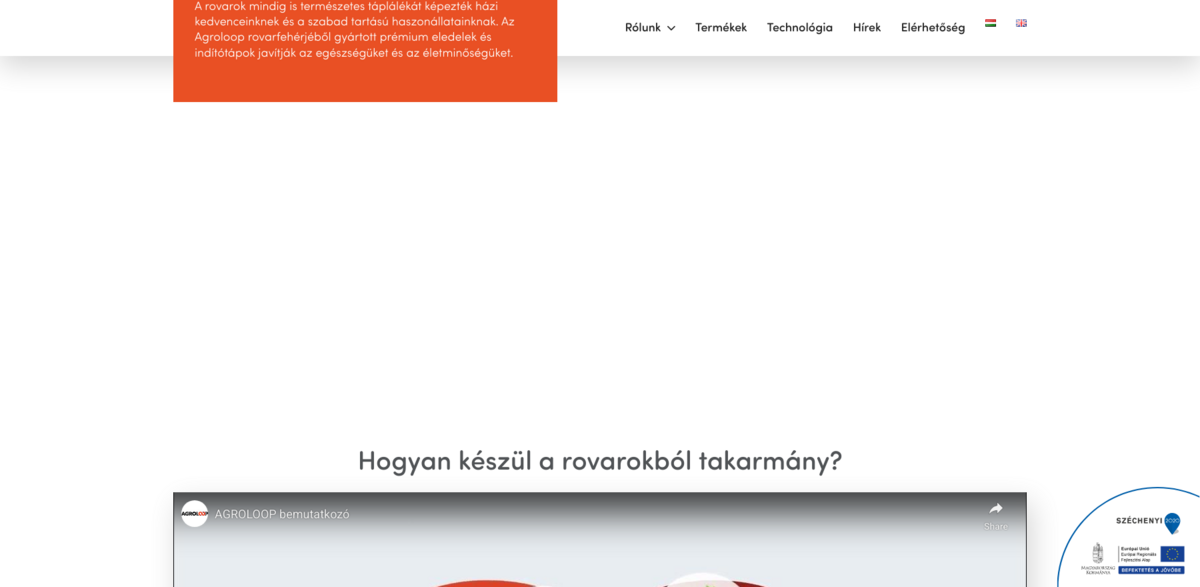What is Agroloop’s Insect-Based Feed Project?
Agroloop is pioneering the future of sustainable animal feed by harnessing the power of insect protein. Using larvae of the black soldier fly, bred on an industrial scale, Agroloop produces premium feeds and starter feeds that naturally enhance the health and quality of life for pets and free-range livestock. This innovative approach taps into a natural food source that has always been part of animal diets but now refined for modern industrial needs. The project is all about blending sustainability with large-scale production, aiming to meet the growing global demand for feed while protecting the environment.
Main Benefits of Using Insect Protein in Feed
Why insect protein? Here are some key facts and figures that highlight its advantages:
- Black soldier fly larvae grow rapidly, reaching full development in just three weeks.
- Larvae efficiently convert food industry by-products into high-quality body mass.
- Mixing insect protein into laying hen feed results in higher quality eggs.
- Insect-based feeds improve pets’ health and vitality, reducing allergies and digestive issues.
- Use of local by-products reduces greenhouse gas emissions compared to conventional feed production.
- Agroloop’s first industrial-scale plant operates at full capacity, leading Central Europe in this field.
How Does the Feed Production Process Work?
The process starts with the black soldier fly eggs hatching inside a controlled climate environment. The larvae then feed on a carefully prepared mixture of locally sourced food industry by-products. This bioconversion process rapidly transforms organic waste into nutrient-rich biomass. After about three weeks, the larvae pupate, and from them, premium feed flour and fat are extracted. This method not only produces high-quality feed but also supports a circular economy by returning compost and unused materials back into the raw material cycle.
Challenges Facing the Feed Industry Today
Meeting the skyrocketing demand for protein is no small feat. Human civilization’s growth has pushed food and feed needs to unprecedented levels. Conventional protein sources just can’t keep up sustainably. On top of that, there are around 500 million dogs and cats worldwide, gobbling up 20-25% of the meat and fish processing industry’s output. With pet ownership rising and animals being treated more like family, the pet food industry faces pressure to deliver premium, locally produced, and sustainable protein options. It’s a complex puzzle, but insect protein offers a promising piece.
Improving Animal Health and Performance Naturally
Animal protein has been a cornerstone of livestock feed for thousands of years, providing essential amino acids and supporting immune health. Agroloop’s insect-based products boost feed intake in young animals, strengthen their immune systems, and reduce disease occurrences. This means fewer antibiotics are needed, which is a huge win for animal welfare and food safety. These benefits position insect protein not just as a raw material but as a functional additive that enhances overall feed quality and animal performance.
Project Impact on Sustainable Development Goals (SDGs)
- SDG 2: Zero Hunger – by contributing to sustainable food production systems.
- SDG 12: Responsible Consumption and Production – through circular economy practices.
- SDG 13: Climate Action – by reducing greenhouse gas emissions from feed production.
- SDG 15: Life on Land – promoting biodiversity-friendly farming methods.
- SDG 9: Industry, Innovation, and Infrastructure – advancing industrial-scale insect farming.
Why Sustainability and Innovation Matter in Feed Production
Agroloop’s approach tackles sustainability head-on. Instead of letting food industry by-products release greenhouse gases, these materials are transformed into valuable feed components. The rapid growth of larvae concentrates nutrients efficiently, producing storable, high-quality feed products. Plus, by focusing on local resources, the project reduces Europe’s reliance on imported soy and fishmeal, which often come with environmental and ethical concerns. It’s a smart, innovative solution that aligns industrial production with ecological responsibility—because feeding the future shouldn’t cost the earth.






















